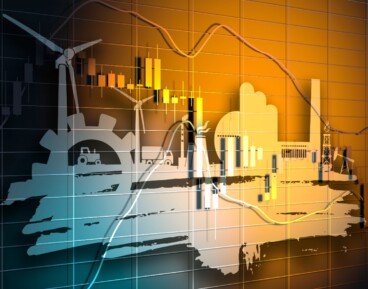German automotive industry at a crossroads
Kategoria: Business
The Commerce Department today reported that retail sales rose for a 10th month in a row in April.
Hooray! I guess that means the consumer is well and truly back on his (or her) feet. Or not.
You see, despite unprecedented fiscal and monetary stimulus, the injection of so-called „squatter’s rent” (the increase to income from withheld mortgage payments), the wealth effect stemming from rising stock prices, and population growth of nearly one percent a year (which naturally boosts demand for all sorts of goods and services), consumer spending hasn’t exactly been robust.
In fact, as the following chart shows, if you strip out the effects of consumer price inflation — which is undoubtedly rising at a faster pace than government statistics suggest — retail sales (including or excluding automobile and gasoline station sales) remain below where they were when the financial crisis struck.
Once again, all I can say is: What a recovery!


